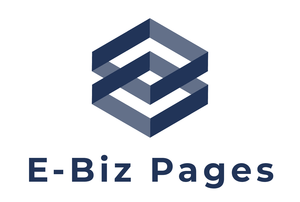Organic Search Engine Optimization: The Art of Organic SEO
Are you looking for ways to improve the organic search results for your website? Do you want to ensure that your site appears at the top of the list when users search for related terms? If so, this blog post is for you! We’ll be exploring several tips and tricks that you can use to get your website to rank higher in organic search results. Read on to learn more about how you can boost your website’s visibility and help increase traffic.

Identifying Your Target Keywords
When optimizing your website for organic search results, it is important to identify which keywords are most relevant to your product or service. Once you have identified these key terms, it is then important to ensure that your site’s content is optimized for delevopment of this keyword ranking.
One way to optimize a website for organic search results is through the use of keyword rich titles and meta descriptions. Ensuring that both of these elements are optimised for each pageview can help improve rank on Alphabetically-Sorted Search Engines like Google and Yahoo!
Additionally, ensuring all pages on the site use unique titles and Meta descriptions will also help keep your site from appearing alphabetically close to other sites with similar content but more targeted keywords

Optimizing Your Site Content for SEO
To improve your organic search engine optimization efforts, it is important to identify your target keywords and optimize your site content for those keywords. You can also create quality backlinks and use social media to promote your site. Finally, you can leverage structured data markup and optimize image alt text and metadata to improve your SEO.

Creating Quality Backlinks
One of the most important aspects of organic search engine optimization is ensuring your site’s content is high quality. This means writing engaging and keyword rich articles that are also well-organized and easy to navigate. Additionally, make sure to include keywords in the article’s title, in the article’s meta description, and in the article’s content.
Another important factor in ensuring your site ranks well in organic search is optimizing your site for speed. Make sure all your pages load quickly and that your site uses efficient coding techniques. Finally, make sure to include a Google Analytics account so you can track your website’s performance and make necessary changes.

Utilizing Social Media for SEO
1. Use Social Media to Reach a wider Audience
One of the best ways to improve your organic search ranking is to use social media platforms to reach a wider audience. By creating and promoting content on popular social media sites, you can increase your traffic and potentially improve your ranking in Google and other search engines. Consider using Twitter, Facebook, LinkedIn, YouTube, and Instagram for your marketing efforts.
Leveraging Structured Data Markup
Understanding Structured Data Markup
Structured data markup is a way to make your website’s data more accessible to search engines. By using this markup, you can help your website rank higher in organic search results.
There are a few things you need to do in order to use structured data markup on your website. First, you need to create a schema. This schema will define the structure of your data. Next, you need to add the appropriate tags to your pages and files. Finally, you need to make sure that your data is properly tagged.
There are a few different types of structured data that you can use on your website. The first type is called entity tags. Entity tags are used to identify specific pieces of data on your website. For example, you could use entity tags to identify your website’s pages, posts, or products.
The second type of structured data is called microdata. Microdata is used to add additional information about your website’s data. For example, you could use microdata to add information about your website’s visitors.
Structured data is important for SEO because it can help your website rank higher in organic search results. By using entity tags and microdata, you can help your website stand out from the competition.
Benefits of Implementing Structured Data Markup
There are many benefits of implementing Structured Data Markup on your website. By marking up your site with standard HTML tags and using Schema.org markup, you can improve the search engine optimization (SEO) of your site by providing valuable metadata to Google and other search engines. Here are some of the benefits:
- Improved Rankings: By properly tagging your pages with structured data, you can confidently expect to see improved rankings in both organic and paid search results. This is thanks to the increasing popularity of schema-based ranking algorithms, which take into account a site’s overall structure when determining its rank.
- Accelerated Indexing: Structured data helps ensure that relevant information is quickly found by users on your site. This is especially valuable in today’s WordPress-dominated search engine landscape, where plugins and themes are often updated without any regard for the data they might impact. By properly tagging your pages with schema markup, you can ensure that all of your data is properly indexed and available to users when they’re looking for it.
- Improved Communication: Structured data also makes it easier for you to communicate with search engines about the content on your site. Not only can you enter meta information liketitle anddescription into the appropriate tags, but also use Schema.org types to define specific structural attributes of your content (including dates and numbers). This information helps indexers better understand the nature of your content and makes it easier for them to generate rich results for users.
There are many benefits to implementing Structured Data Markup on your website. By marking up your site with standard HTML tags and using Schema.org markup, you can improve the search engine optimization (SEO) of your site by providing valuable metadata to Google and other search engines. Here are some of the benefits:
- Improved Rankings: By properly tagging your pages with structured data, you can confidently expect to see improved rankings in both organic and paid search results. This is thanks to the increasing popularity of schema-based ranking algorithms, which take into account a site’s overall structure when determining its rank.
- Accelerated Indexing: Structured data helps ensure that relevant information is quickly found by users on your site. This is especially valuable in today’s WordPress-dominated search engine landscape, where plugins and themes are often updated without any regard for the data they might impact. By properly tagging your pages with schema markup, you can ensure that all of your data is properly indexed and available to users when they’re looking for it.
- Improved Communication: Structured data also makes it easier for you to communicate with search engines about the content on your site. Not only can you enter meta information liketitle anddescription into the appropriate tags, but also use Schema.org types to define specific structural attributes of your content (including dates and numbers). This information helps indexers better understand the nature of your content and makes it easier for them to generate rich results for users.
Verifying Your Structured Data Markup Implementation
Structured data markup is a great way to improve the organic search results for your website. It can help you to target your content more effectively, and can also help to improve the overall user experience. However, verifying your structured data markup implementation is important in order to ensure that your data is correctly formatted and accurately reflects your website’s content.
To verify your structured data markup implementation, you can use a variety of tools, including Google’s Structured Data Testing Tool and the Structured Data Testing Checker from Open Site Explorer. Both tools allow you to test your markup against a set of predefined rules, and can help you to identify any errors or inconsistencies. Additionally, you can use Google’s Structured Data Testing Tool to generate a report detailing the results of your markup validation.

Optimizing Image Alt Text and Metadata
To optimize image alt text and metadata, you’ll need to:
- Determine which images should have alt text
- Write the alt text for images that do not already have it
- Add a brief description of each image to its descriptor file

Writing Engaging Meta Descriptions
Metadata:
Every website has information about it, and search engines use metadata to help people find the right content. Metadata can include things like title tag, description, author name and other data that helps readers narrow down their options.
Keep your content as keyword rich as possible so that you rank highly in organic search results for key words relevant to your business and niche. For example, if you sell shoes, include keywords like “shoe” or “style” in your titles and descriptions to give searchers a more focused result set. In addition, make sure all of your site’s meta data is accurate and up-to-date – including the alt text on images and the tags used for SEO purposes.
Regularly audit your site’s SEO performance to ensure that you’re getting the most from all of your efforts. Use available tools to check rankings (like Google Trends), view traffic statistics and analyzeclickthroughrates (CTRs) to see how well visitors are interacting with specific pages on your site. If you notice any trends that seem out of place or indicative of declining optimization efforts, take corrective action quick!
Monitoring and Analyzing Your SEO Performance
Monitoring and Analyzing Your SEO Performance
One of the most important aspects of SEO is monitoring and analyzing your website’s performance. This includes tracking your website’s traffic, analyzing your keywords and their search volume, and reviewing your site’s analytics. By doing this, you can make adjustments to your site’s content and SEO strategy as needed to improve your ranking.
By following the tips outlined in this article, you can improve your website’s organic search engine optimization and help it rank higher in search engine results. It is important to keep in mind that SEO is an ongoing process and requires regular monitoring and optimization to ensure that your website is up-to-date with the latest search engine algorithms. With a little effort and dedication, you can ensure that your website is well-positioned to reach its full potential in organic search engine rankings.






